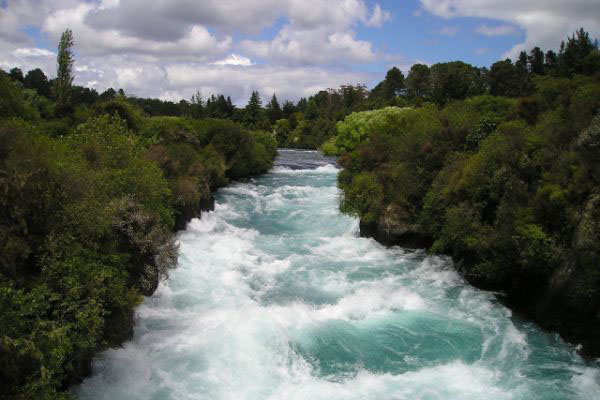Articles / Sustainability / Water reuse / Water technology
Unblocktober
Unblocktober
September 27, 2024
Unblocktober
What is Unblocktober?
Unblocktober (according to their website) is the world’s first month-long national campaign and awareness month to improve the health of the UK’s drains, sewers, watercourses and seas – driven completely by the British public.
Launched in 2019 and funded mainly by UK water companies and firms associated with them, the first Unblocktober saw more than 4,500 Britons pledge to change their kitchen and bathroom habits at home and at work. This rose to more than 66,000 in 2023.
If you’re in the UK, you may remember a few years ago a lot of press about giant ‘fatbergs’ forming in the sewers in our big cities – this was one of the reasons Unblocktober was set up.

The Unblocktober pledge is to avoid certain habits that contribute to drain blockages and plastic pollution for the entire month of October.
Unblocktober 2024
Unblockober (as the name suggests) runs all October in the UK.
The natural and built environments of most of the highly populated British Isles has taken a lot of punishment lately. There are many examples of this:
- Deforestation
- Increasing carbon emissions
- Increasingly unreliable weather
- Rising pollution levels (both in air and water) … and so on.
Additionally, many people have adopted bad habits at home – literally pouring away anything that is waste down the drain or the toilet, with an ‘out of sight, out of mind’ type of attitude.
This could be anything from hot fat and oils to unwanted medications, paint and other solvents to solids like wipes, and even cotton buds and dental floss.
Save our Sewers and Seas
The aim of Unblocktober is to make people think twice about what they are putting in the sewers. ‘Save our Sewers and Seas’ is this year’s Unblocktober theme, and here’s why: build ups of many tons of fat in the sewers are commonplace – sometimes even requiring highway excavations to fix – and whilst most people now know why you shouldn’t pour fat down the drain, there are still a lot of other products poured or thrown in toilets that just shouldn’t be there.
And because it was all ‘out of sight, out of mind’, many of us unknowingly have caused our surroundings, watercourses and rivers severe distress. For too long, we’ve been putting dangerous liquids and items into our drainage systems and sewers. That leads to untold damage to the environment and is a danger to humans and marine life.
We need to take action quickly to try to change those environmentally-damaging habits and reverse the impact of our actions on the environment.
The effects of this ecological damage are already being felt, and will need a concerted effort to slow them down, or better still – reverse them.
How to Protect our Oceans
A lot of what goes into our rivers and sewers ends up in our oceans too.
Domestic sewerage and treated water from industry, poured into the sewers is all sent to Municipal wastewater treatment plants (WWTPs.)
WWTPs first mechanically remove any larger debris in the water and then utilise various processes which are primarily designed to separate and neutralise human waste. These include anaerobic digestion and sometimes activated sludge systems.
Often, that’s it. What that means is that any poisonous chemicals dissolved in the water go straight through to the ocean.
And it is mainly those poisonous chemicals – many of them recently produced ‘synthesised chemicals’ that are doing the most damage.
These ‘recalcitrant compounds’ include many insecticides and pesticides, medications including antibiotics and steroids, aquaculture water treatment chemicals, battery chemicals and corrosion inhibitors.
For instance, more antibiotics in drinking water has led to Anti Microbial Resistance (AMR) where modern antibiotics lose their effectiveness in sick patients due to over-exposure.

‘Save our Sewers and Seas’ is this year’s Unblocktober theme.
Forever Chemicals Harming Ocean Life
Meantime, our planet’s current environmental issues continue unchecked.
Common amongst chemicals not affected by WWTPs are PFAS: Per- and polyfluoroalkyl substances (known as ‘forever chemicals’ as they never break down in water.)
These chemicals are found in everything from fast food packaging to water-repellent coatings for outdoor gear, from fire retardant foam to ingredients in many cosmetics and medicines.
The EU is in the process of banning some classes of PFAS; In the U.S., the Environmental Protection Agency already has.
PFAS have been linked to a wide range of health risks including cancer, hormone disruption, liver and thyroid problems, interference with vaccine effectiveness, reproductive harm, and abnormal foetal development.
Fortunately though, recent advances in water treatment technology have brought to market a range of effective tertiary water treatment solutions based on electrochemistry. This technique is proving incredibly effective in removing many recalcitrant compounds including complex solvent-based pollutants from water – often right down to below measurable levels.
The issue worldwide is that until current discharge regulations catch up and force manufacturers to remove these chemicals from wastewater at source, very few companies will want to take on the additional expense of tertiary water treatment. It’s a real chicken and egg situation right now!
Why Unblocktober is Important
Unblocktober has importance as it highlights to the public an important aspect of water preservation and sustainability.
It’s vital that they get as much information as possible about the harm that can be done to the environment if fat, grease and more critically, poisons are poured ‘down the drain’.
Therefore this yearly campaign deserves support from industry as it will make a difference if enough people get behind it.
Arvia’s Role in Protecting the Oceans
Arvia Technology, a British company headquartered in Runcorn, Cheshire produces and manufactures a range of advanced industrial wastewater treatments.
Based on electrochemistry, Arvia’s Nyex Ellenox™ and Rosalox™ systems can reduce many recalcitrant compounds dissolved in water to just a few parts per billion making treated water suitable for a wide variety of purposes – including drinking!
Unlike some other water treatment systems, Arvia’s Nyex systems do not require any hazardous chemicals to be added (so no COSHH regulations to worry about) and their only outputs are water and gas.
They’re easy to maintain, compact and have an instant on/off so are suitable for batch operations too.
Arvia’s water treatment systems can dramatically reduce many ‘forever chemicals’ in water that conventional WWTPs cannot. For more information or to talk to a water scientist who’ll understand your specific water issues, why not schedule a free discovery call today?
More featured articles
01.31.2023

We discuss sustainable water management and how specific industry sectors would benefit by adopting water stewardship.
07.7.2021

Why any company that discharges water needs to be ready to be put under the microscope.
03.16.2021

The scarcity of water is pushing up its price. As a result, water recycling is becoming increasingly important in many industries. In this article we examine how Arvia’s unique technology can be a vital part of a cost-effective water recycling system in pharma.
Our wastewater treatment expertise
Our water technology can be used to treat a variety of water treatment applications. Once we understand the nature of your wastewater and your final water quality target, our water treatment specialists can make recommendations as to how best to treat your water. Take a look at some of the Nyex applications here:
Need help? Speak with an expert